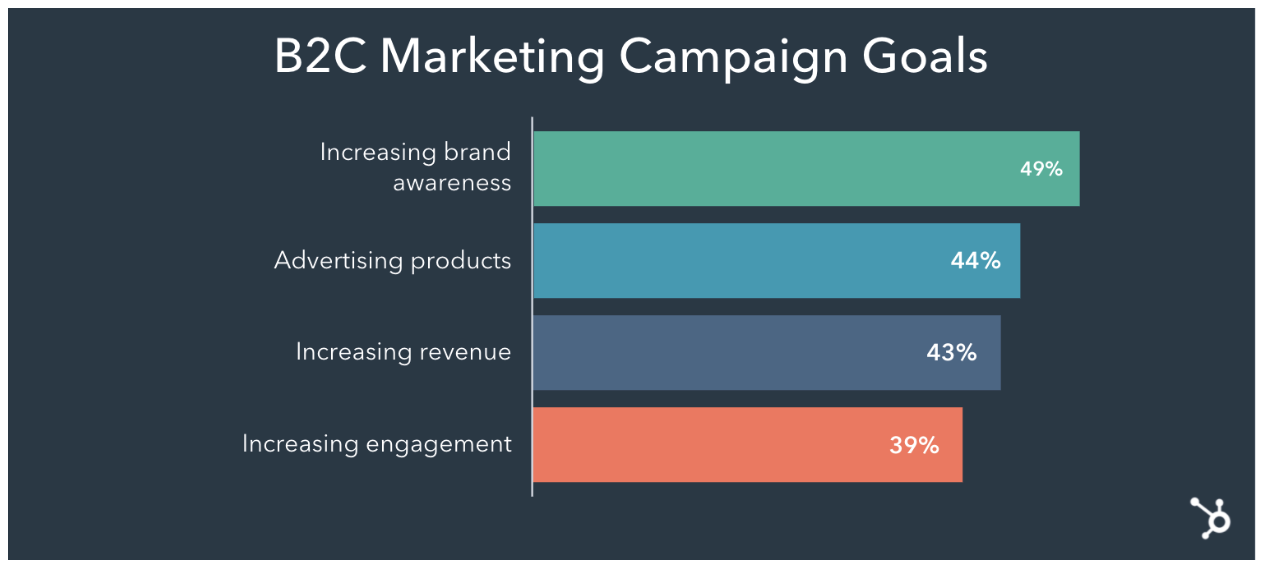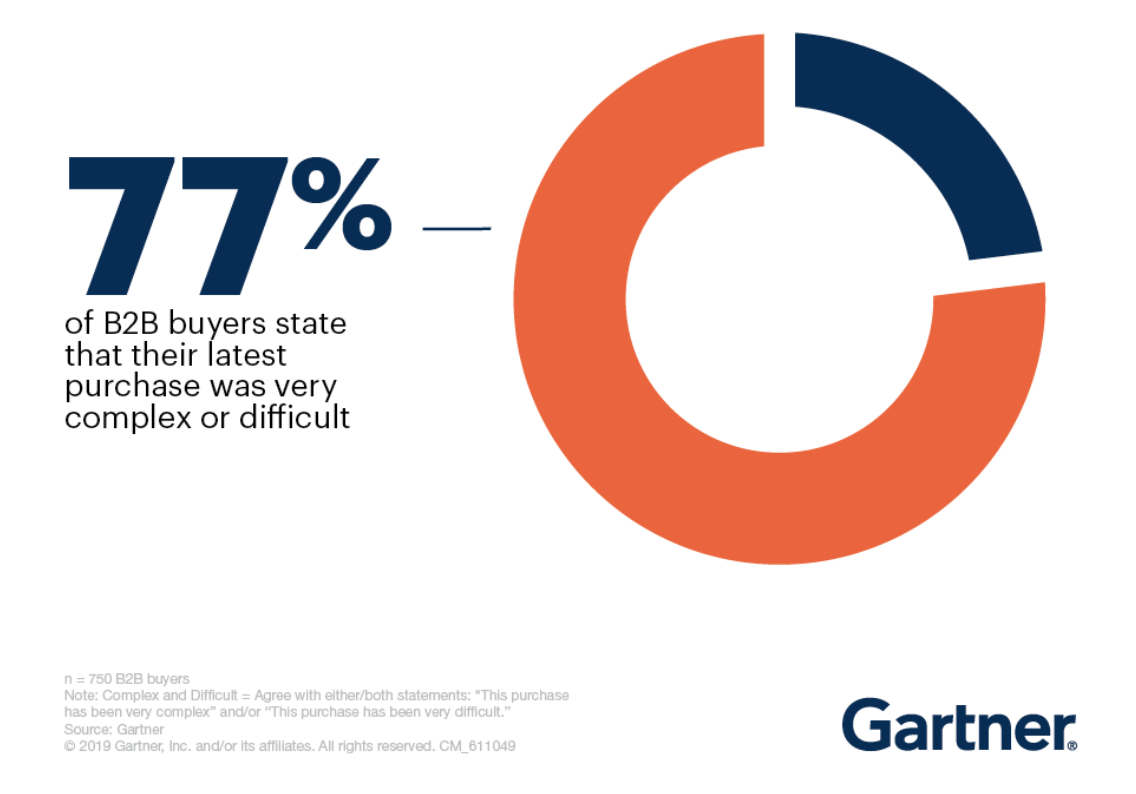Content marketing for B2B is often seen as worlds apart from B2C content marketing.
When you picture your average B2B marketer, you might imagine someone in business-formal attire writing some kind of highly complex, technical ebook. It likely contains a ton of industry-specific buzzwords, and probably some stock images of people smiling while pointing at a whiteboard.
On the flip side, B2C marketers are seen as a bunch of happy-go-lucky creatives crafting peppy Instagram posts over cups of artisanal coffee.
Sure, there’s some truth to those stereotypes.
B2B and B2C content marketing aren’t the same thing; otherwise there’d be no need to give them different names.
At the same time, there’s a lot more overlap than people might imagine. After all, it’s all marketing.
With that in mind, in this article we’re going to explain some of the biggest similarities and key differences between content marketing for B2B and B2C audiences.
2 Similarities Between Content Marketing for B2B & B2C Audiences
B2B & B2C Content Marketing Share Similar Goals
Whatever audience you’re creating content for, and whatever product or service you’re selling, your objectives will be pretty much the same.
According to HubSpot, the biggest objectives for B2C marketing campaigns are to build brand awareness, promote products, increase revenue, and drive engagement.
Would any of those goals be irrelevant, or a lower priority, for B2B marketers? Absolutely not.
What Does This Tell Us?
Your marketing goals should be based on the specific needs of your organization, not the fact that you’re a B2B or B2C organization.
Just entered a new market, or find yourself competing against a bunch of bigger, better-known brands? Focus on brand awareness.
Generating lots of leads, but struggling to keep their attention as they progress through the buyer cycle? Work on driving engagement.
You get the idea.
Successful Content Marketing Looks the Same for Any Audience
Just as the goals of B2B and B2C content marketing campaigns are basically the same, there’s no difference between what a “good” piece of content looks like.
The fact is, great content is great content.
For content to resonate with your audience, it needs to be engaging and non-repetitive. And it needs to offer something new rather than just reiterating what’s already out there.
Sure, the technicalities will vary from one audience to the next.
Some potential customers will find visual content more engaging, while others prefer to see everything written down. Some want you to be concise and to-the-point; others want more detailed explanations and insights.
But those differences aren’t a case of B2B vs. B2C — they’re equally relevant to both markets.
What Does This Tell Us?
The only way to truly understand what content works for your audience is to test lots of different approaches.
Consider creating similar pieces of content then publishing them in multiple formats — a long-form ebook, a series of short blog posts, a video, etc.
When you find something that works, do more of it.
2 Differences Between Content Marketing for B2B & B2C Audiences
B2B Sales Cycles Tend to Last Longer
B2B sales cycles tend to be longer than their B2C alternatives.
There are various reasons for this.
In part, it’s because B2B buyer journeys are likely to involve a lot more decision makers.
If you’re buying a new pair of sunglasses, you might run your preferences past one or two people, but ultimately the choice is yours (and so is the budget).
In contrast, the average B2B sales cycle involves 6.2 decision makers, according to Korn Ferry.
One Gartner study found that B2B buying teams spend an average of 16.3 months to make a new IT purchase, while separate research — also from Gartner — discovered that 77% of B2B buyers described their most recent purchasing experience as “difficult” or “extremely complex.”
Of course, these are generalizations. They don’t always hold true between B2C and B2B organizations.
As anyone who’s ever bought a house will tell you, B2C purchases aren’t always a case of finding the right product and handing over the money. They can take weeks or months of back and forth between various stakeholders.
Likewise, some B2B sales can have a pretty fast turnaround.
According to HubSpot, the average SaaS sales cycle is 84 days, but that drops to around 40 days for products with an annual contract value of less than $5,000.
But generally speaking, content marketing for B2B is going to be a much longer game than B2C content marketing — and that has the potential to affect everything from the type of content you produce to the amount of it you’ll need.
What Does This Tell Us?
Because B2B sales cycles are (generally) longer, the role of content marketing becomes slightly different.
If it takes you six months on average to close a deal, content is much less likely to drive direct conversions.
Instead, it becomes a tool for keeping your audience engaged and moving them down the sales funnel.
Tone of Voice Between B2B and B2C Marketing Can Be Different
Perceived wisdom tells us that content marketing for B2B typically has a more professional tone of voice.
There are plenty of examples where that’s true — but it’s not automatically the case.
For instance, Squarespace is a B2B tool that helps entrepreneurs and businesses build their own websites. But it’s happy to push the creative envelope with its content marketing, as demonstrated by its 2021 Super Bowl campaign, starring Dolly Parton:
Likewise, lots of B2C brands strike a more serious tone.
Hays is a recruitment agency, which means 50% of its business is about engaging and converting candidates. To do that, it uses a pretty conservative tone of voice to offer professional career guidance.
That makes sense. If you’re looking for tips on how to write a resume, you likely don’t want to read a bunch of knock-knock jokes along the way.
What Does This Tell Us?
Again, it’s not about B2B vs. B2C, it’s about your specific audience.
Test different tones of voice to see which resonates best.
Most likely, you’ll find different tones are more applicable at different stages of the buyer journey.
At the very top of the marketing funnel, audiences might prefer something more lighthearted. But as they move closer to purchase, audiences may engage with more serious, professional content.
You’ll only find out by giving it a try.
Content Marketing Should Vary By Audience, Not By Vertical
In reality, it doesn’t make a ton of sense to speak about content marketing for B2B like it’s one, consistent “thing.”
Because no two B2B audiences are exactly alike.
A buyer searching for a fast, cheap meeting booking software has very different needs to one trying to hire a team of corporate lawyers — but both are examples of B2B transactions.
So rather than basing your content marketing on what you think a B2B brand should and shouldn’t do, think about what your specific audience wants from you.
Struggling to create content that resonates with and engages your audience? Content Conquered can help! Get in touch with us today to discuss your next campaign.



